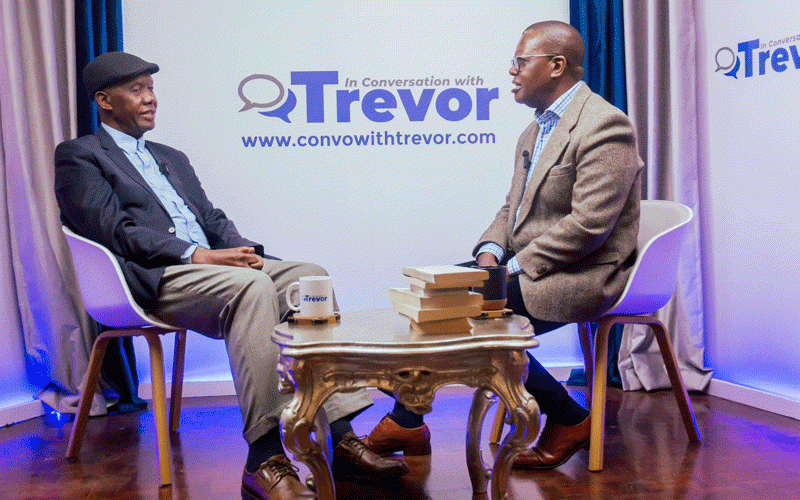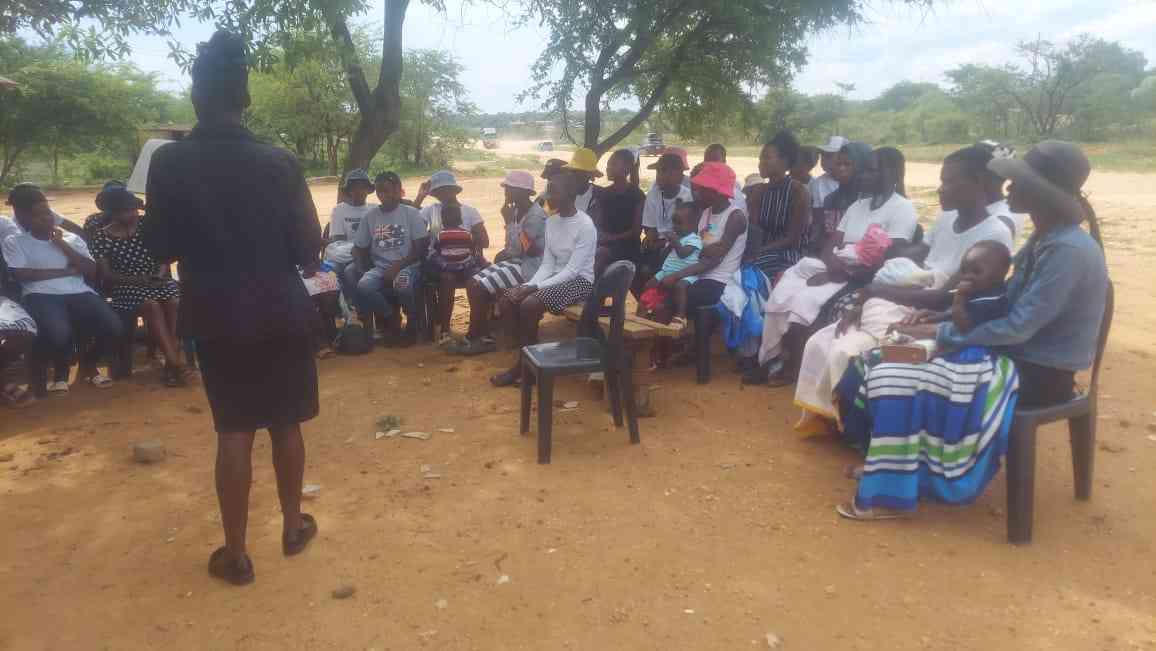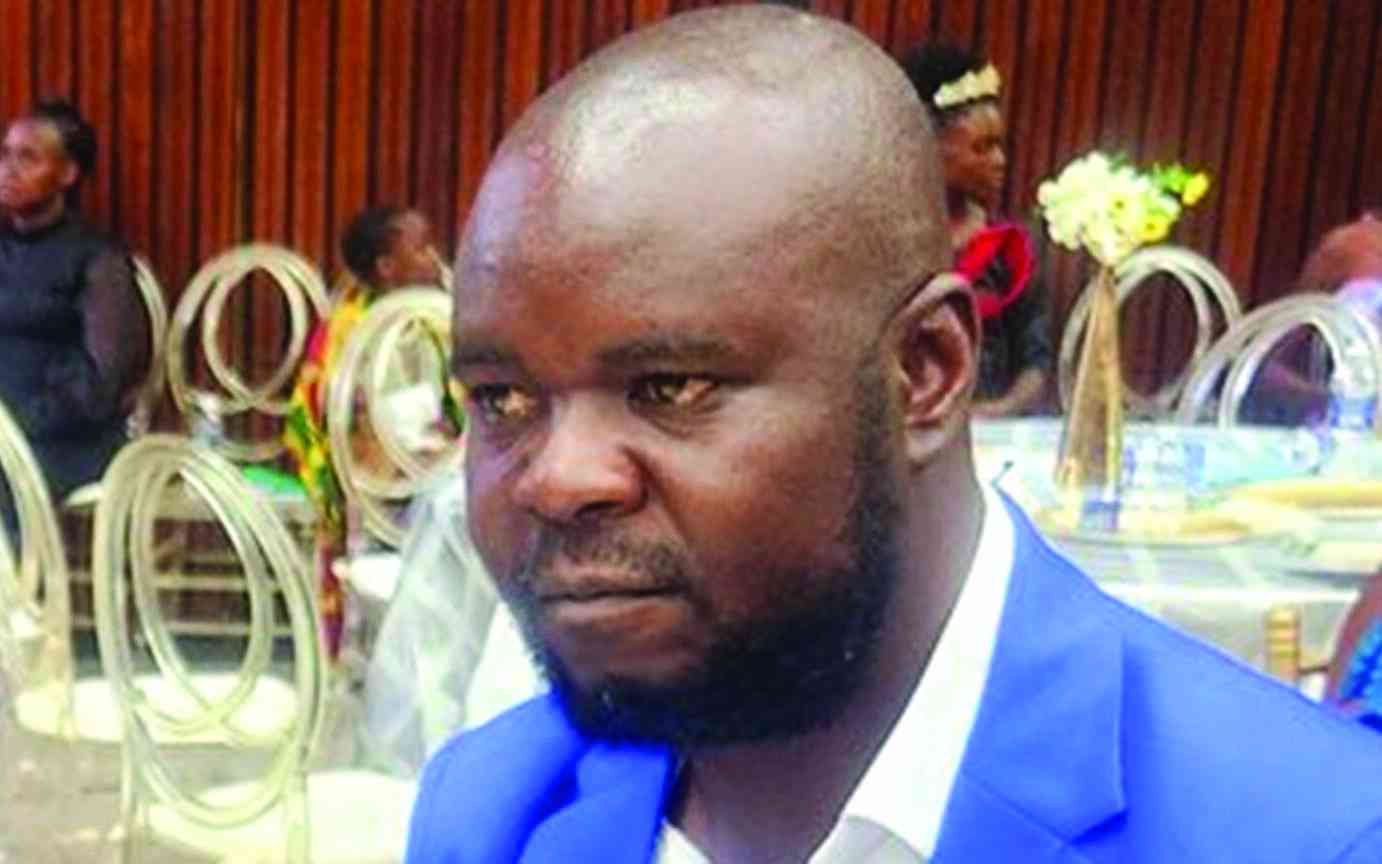
Faith Ministries Worldwide presiding bishop Ngwiza Mnkandla says he knew that he was going to be a preacher when he was a little boy in primary school.
Ngwenya (NM) spoke about his journey in the ministry on the platform In Conversation with Trevor hosted by Alpha Media Holdings chairman Trevor Ncube (TN).
Below are excerpts from the interview.
TN: Greetings, welcome to In Conversation with Trevor, brought to you by Heart and Soul Broadcasting Services. Today, I'm with Ngwiza Mnkandla, the presiding bishop of Faith Ministries Worldwide. How did God find you?
NM: I'm very privileged in that at a very early age, I got to know the Lord.
I grew up in an SDA (Seventh Day Adventist) area and we used to go to camp meetings once a year, we could go and camp for like seven days.
For two consecutive years, maybe the age of about seven or eight, I went to those camp meetings.
And the gospel was preached very clearly. I came under a very deep conviction in those two years, I would go forward to surrender my life to the Lord.
- ICT boon: The case of vulnerable children during Covid-19 pandemic
- Divine insight: The power of relationships
- ICT boon: The case of vulnerable children during Covid-19 pandemic
- Divine insight: The power of relationships
Keep Reading
Regrettably at the time, they didn't focus on young children. We were just pushed to the side and they focused only on the world of older people. I suppose they thought we have enough sins to talk about.
But what they didn't know was that a powerful seed had been planted in my life during those two years.
And I walked away from that place with a deep conviction that my life was surrendered to the Lord and that I would be a minister of the gospel.
When I got to the village and people asked me what I'd become when I grew up, I told them there would be a pastor, my nickname was Umfundisi, you know, as a little boy.
TN: How little?
NM: I'm talking about seven or eight years, that’s as far back as it was.
So we would be looking after our sheep and goats and they'd be grazing in the bushes.
And the bushes were suddenly in my mind's imagination.
And that's when I started preaching. I started preaching to bushes as a little boy. That's how I came to know the Lord.
And from then on, you know, my mission in life was clear. I was called to become a shepherd of God's people.
TN: Were there people in the way that encouraged this journey?
NM: There wasn't anybody who actually recognised that calling, sadly, that calling in me. My story then goes on to how I got kicked out of the village and ended up in the city.
TN: How, how did you get kicked out of the village?
NM: Well, my headmaster on one of the parent teacher days called my parents and said to them, I was doing Grade Six then, ‘I don't want your boy in my school next year for Grade Seven. I'm kicking him out.’
My parents were confused because I was doing well in school and school seemed to like me as well.
When pushed to explain why he was kicking me out, he said, ‘this boy is doing well here. But he's cruising.
And my school is not good enough to qualify him for secondary school; he's not going to make it. He may do well here, but he's not going to make it in secondary school.
I want him in a city school where his mind will be opened, where there is bigger competition. And that's what he said, this boy has potential to go around the world.’
And that opened a new world for me.
After my A’ Level, I was so convinced that I was on the wrong path in terms of my educational career that I was going to university and was going in the wrong direction as a pastor.
TN: What does that tell you? Is that the hand of God? How do you read it?
NM: Trevor, you need to know that I come from a family of seven. I'm the only one right now that's left.
I'm the only one who went to secondary school because I left the village.
The others never made it because they never left the village.
But that camp meeting, it refocused me and brought me back to my calling that I had as a little boy.
TN: Don't we sometimes battle with our destiny makers? In this instance, your response was, yes, talk to me about that and when do we get, how do we get to say yes to what the destiny maker is suggesting?
NM: For my headmaster, I had very little say in a sense, because I was a little boy going into Grade Seven. I listened to what my parents were saying.
They listened to the advice of the headmaster and that's the providence of God, working through second senses around you, working through your parents, working through people around you to bring you to your place of destiny.
Now, yes, sometimes we may resist those goddess sent, as destiny, moulders and changes.
TN: I want us to move now to some really heavy lifting stuff. You have built an amazing ministry over the past 50 years, 45 years.
What have been the most important things for you in your journey over the past 45 years as you build the ministry? What have been the building blocks of building the ministry?
NM: I think that it's important to say that I've been privileged to be a part of the journey. It's not like I've done it myself. I've been part of a team. I've worked with many to come to where we are right now. I've worked with an amazing, you know, team of men over the years to get to where we are.
Again, certain principles were urged in my spirit that have kind of made me who I am.
TN: So in a nutshell, could you walk us over the principles?
NM: I think the principles I learned, they gave me a philosophy of ministry. Number one, the foundation of ministry is character, a character is so vital, I mean, we could spend ages.
So the foundation of ministry is character. The nature of ministry is service. As a leader, you're not there to be served, you are there to serve others.
Number three, the motive of ministry is love. Why are we doing what we are doing? Number four, the nature of ministry is sacrifice.
Do we really understand the sacrifice, you know, of leadership? Number five, the authority of ministry is submission.
Do we understand the principles of walking in submission to leadership and to others?
You will not carry authority if you don't understand how to walk and don't know authority.
Number six, the tools of ministry are the word of God and prayer.
You'll be amazed that we, as pastors, we focus on so many other things and we have not made prayer in the word foundational, you know, like, I got back to my scripture in the days, you know, where we're taught, read your Bible, pray every day, you know.
The purpose of ministry is the glory of God. Why are we doing what we're doing?
So the focus must never be on us, on ourselves. It must be on exalting Jesus. It must be in the kingdom of God. And that's so crucial.
We've gone away from that. If you look at, you know, ministries today, we live a lot to be desired.
And the last three, the privilege of ministry is growth. There must be growth. Anything that has the fingerprint of God has to grow.
The power of ministry is the Holy Spirit. We must never forget that.
But the final one is the model of ministry is Jesus. Just those ten principles form the bedrock. They are the engine.
- “In Conversation With Trevor” is a weekly show brought to you by Heart & Soul TV. It’s also available on YouTube.com//InConversationWithTrevor.











